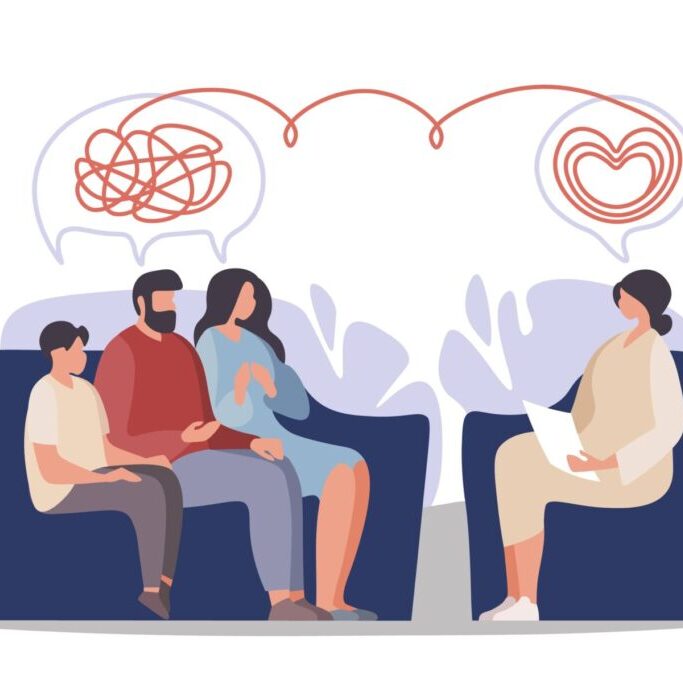Monogamish: The Value of Conversations About Non-monogamy for All Relationships

Non-monogamy has become increasingly popular in recent years within both LGBT+ and heterosexual relationships, with terms such as open relationships and polyamorous relationships becoming more common. Even Tinder has added polyamory to its list of desired relationship types. This trend has led to a growing interest in non-monogamy among couples and relationship therapists in Chicago, as well as researchers at Northwestern University’s Institute for Sexual Health and Minority Wellbeing.
LGBT and queer relationships & heterosexual relationships!
While non-monogamous relationships are more common among LGBT+ and queer relationships, they are also being explored by heterosexual couples. Discussions around non-monogamy can help couples acknowledge different possibilities and make relationship decisions based on their own desires and needs, rather than societal expectations. The mere discussion of these decisions allows partners to express aspects of monogamy and non-monogamy that are desirable to them as well as those that are not desirable. In the process of expressing these thoughts, partners build trust and understanding of one another.
Non-monogamy Isn’t New
The idea of non-monogamy is not a new one. In fact, The Ethical Slut (Easton and Hardy), a book about non-monogamy, was first published in 1997 and helped catapult the conversation about monogamy and its alternatives into the mainstream. In 2010, Dan Savage (LGBT+ author and opinion columnist) sparked quite a bit of controversy when he coined the phrase “monogamish” to describe the 20-year relationship between him and his spouse. Monogamish, Savage says, is a “committed emotional partnership in which each person is occasionally allowed to have sex with other people.” Although these arrangements are rarer in heterosexual relationships, they seem to be more normative among LGBT+ and queer relationships.
Couples therapists and relationship therapists in Chicago have noticed a growing expansion of conversations and considerations around non-monogamous relationships. Therapists for gay men are likely the most familiar with the topic, but Chicago couples counselors working with a spectrum of populations are noticing an uptick in conversations around open relationships. Northwestern University’s Institute for Sexual Health and Minority Wellbeing has empirically explored non-monogamous relationships and their impacts on LGBT+ health.
How do conversations about non-monogamy positively impact relationships (regardless of sexual agreement)?
Regardless of societal expectations, there are ways in which even a discussion about open relationships (While not advocating one agreement over the other!) can strengthen your relationship. One such way is by acknowledging the possibilities that exist. Therapists engaged in couples therapy work from a principle of curiosity and seeking to understand. This skill, while necessary in couples therapy, is advantageous to partners and encourages relationship satisfaction as well. Partners who don’t make assumptions about their partner, but instead demonstrate interest and curiosity – enhance their connection, allow for and encourage their partner to grow and evolve, and learn ways to increase their relationship satisfaction.
Unfortunately, gender norms outline the roles of partners in many straight relationships, and those roles are often not considered or discussed. Dr. John Elia of San Francisco State University indicates that this is problematic, for LGBT+ and straight relationships. He notes that a specific form of heteronormative relationship is idealized, at the expense of more successful relationships. For gay couples and other LGBT+ relationships, gender norms can’t be the determinant of many relationship decisions. As a result, LGBT+ and queer relationships are forced to consider various possibilities of relationship rules, structure, and partners’ desires. This practice is both healthy and leads to greater relationship satisfaction.
Another way that discussing non-monogamy can benefit a relationship is by increasing intimacy. Porn has influenced how we think about sex and sexual connection. For example, it has conditioned us to believe we need to perform sexually or even take on a character, that conversations about sex are not necessary or helpful, and that men are more sexual than women. However, real sex is not porn. Conversations about sex are healthy and an important part of sexual and relationship satisfaction. Discussions about monogamy or alternatives can be a part of larger discussions around sexuality.
Non-monogamy can also help address issues related to jealousy and possessiveness in a relationship. When partners feel secure in their emotional connection and have open communication about their desires and boundaries, jealousy may become less of an issue. By discussing non-monogamy, partners may also be forced to confront any feelings of possessiveness and work towards developing a more healthy, less controlling approach to their relationship.
Non-monagamy isn’t for everyone!
It is important to note, however, that non-monogamy is not for everyone. It requires a high level of communication, trust, and emotional maturity, and it may not be compatible with certain individuals’ values and beliefs. For some, the idea of sharing their partner with others may be too uncomfortable, even if it is just on an emotional level. In these cases, it is important to respect each other’s boundaries and work towards finding a relationship structure that is fulfilling for both partners.
Additionally, it is crucial to approach non-monogamy with caution and consideration for everyone involved. Partners should establish clear boundaries and guidelines for their relationships with other people, including how much information to share about outside partners and how often they will engage in non-monogamous activities. It is important to prioritize honesty, trust, and communication in order to avoid hurt feelings and misunderstandings.
Finally, it is important to recognize that non-monogamous relationships are not immune to the same issues and challenges faced by monogamous relationships. Just like any other relationship, non-monogamous relationships (whether LGBT+ or heterosexual) require ongoing work and effort to maintain, and partners must be willing to address issues as they arise in order to maintain a healthy and fulfilling connection.
Non-monogamy is a topic that is becoming increasingly visible and accepted in today’s society, and it can provide a range of benefits for individuals, relationships, and couples who are willing to explore it. By acknowledging the possibilities and having open, honest conversations about non-monogamous relationships, partners can build trust, increase intimacy, and develop a more fulfilling connection with each other. However, it is important to approach non-monogamy with caution, consideration, and a willingness to address issues as they arise in order to maintain a healthy and satisfying relationship structure.
A couples counselor can make conversations easier!
The team of couples counselors at Tandem Psychology would love to help you explore your thoughts and feelings about non-monogamy, whether with your partner(s) or solo. We are available in-person at our Lakeview offices or via telehealth. Contact us today to schedule an appointment with one of our therapists!
This blog is made for informational and educational purposes only. It is not medical advice.
The information in this blog is not intended to (1) replace a one-on-one relationship with a qualified licensed health care provider, (2) create or establish a provider-patient relationship, or (3) create a duty for us to follow up with you.



